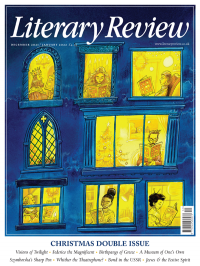Will Wiles
Ode to an Ashtray
Extinct: A Compendium of Obsolete Objects
By Barbara Penner, Adrian Forty, Olivia Horsfall Turner & Miranda Critchley (edd)
Reaktion Books 389pp £29
Far from running smooth, the path of technological progress bristles with dead ends and aborted possibilities. It is quite possible to spear yourself on these snapped-off futures. Around the turn of the century, enjoying the disposable income that came with my very first job, I decided to invest in a home music system. Naturally I opted for the most advanced and ostensibly future-proof technology then available, the MiniDisc, which combined the digital fidelity of the CD with the flexibility of the cassette. How pleased I was with my decision. About a year later, the iPod was released.
At least the MiniDisc gets a memorial in Extinct. Priya Khanchandani lovingly recounts its advantages and, more importantly, its failings (too expensive, lack of support from the recording industry) and misfortunes (to have come into being just before the MP3). But it can be hard to say goodbye. I still have my MiniDiscs; they were too expensive and are too permeated with effort to discard. ‘These are a comedy of my life,’ says the sculptor Richard Wentworth in his essay on slotted screwdrivers, as he imagines the note he will leave to his granddaughters when they come to inherit his collection. The electric screwdriver, which has a tendency to slip out of a slotted screw, has driven the Phillips head to supremacy. But Wentworth cannot forsake the simple haptic pleasure of driving in a screw using muscle power: ‘There’s that moment of the right slot to the right head, to the right depth, to the right pressure, that feeling of completion that is utterly bodily – and it doesn’t make a noise.’
Extinct comprises eighty-five essays on defunct objects, from arsenic wallpaper to the Zeppelin. The format does not immediately inspire confidence, suggesting the listicle and the hurried Christmas present, and readers might feel the phrase ‘a mixed bag’ or ‘hit and miss’ coming on. But Extinct turns out to

Sign Up to our newsletter
Receive free articles, highlights from the archive, news, details of prizes, and much more.@Lit_Review
Follow Literary Review on Twitter
Twitter Feed
It wasn’t until 1825 that Pepys’s diary became available for the first time. How it was eventually decrypted and published is a story of subterfuge and duplicity.
Kate Loveman tells the tale.
Kate Loveman - Publishing Pepys
Kate Loveman: Publishing Pepys
literaryreview.co.uk
Arthur Christopher Benson was a pillar of the Edwardian establishment. He was supremely well connected. As his newly published diaries reveal, he was also riotously indiscreet.
Piers Brendon compares Benson’s journals to others from the 20th century.
Piers Brendon - Land of Dopes & Tories
Piers Brendon: Land of Dopes & Tories - The Benson Diaries: Selections from the Diary of Arthur Christopher Benson by Eamon Duffy & Ronald Hyam (edd)
literaryreview.co.uk
Of the siblings Gwen and Augustus John, it is Augustus who has commanded most attention from collectors and connoisseurs.
Was he really the finer artist, asks Tanya Harrod, or is it time Gwen emerged from her brother’s shadow?
Tanya Harrod - Cut from the Same Canvas
Tanya Harrod: Cut from the Same Canvas - Artists, Siblings, Visionaries: The Lives and Loves of Gwen and Augustus John by Judith Mackrell
literaryreview.co.uk